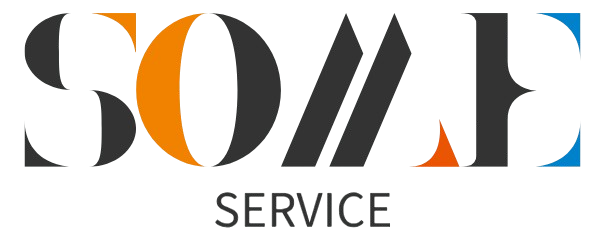Tips for Choosing Cost-Effective Solutions
In today’s fast-paced world where businesses and individuals are constantly looking for ways to optimize their resources and maximize their efficiency, choosing cost-effective solutions has become more important than ever. Whether you are a small business owner, a project manager, or a consumer trying to make smart purchasing decisions, understanding how to select the most economical options can make a significant difference in your bottom line.
Cost-effective solutions are not just about cutting corners or compromising on quality; they are about finding the right balance between cost and value. In this comprehensive guide, we will explore a variety of tips and strategies to help you navigate the complex landscape of decision-making when it comes to choosing cost-effective solutions. From leveraging technology to negotiating with suppliers, we will cover a wide range of tactics that can empower you to make informed and strategic choices.
The Importance of Cost-Effective Solutions

Before we dive into the practical tips for selecting cost-effective solutions, let’s first understand why this topic is so crucial in today’s economic climate. Cost-effective solutions are essential for businesses looking to stay competitive in their respective industries. By minimizing expenses and maximizing returns, companies can improve their profitability and sustainability over the long term.
For consumers, choosing cost-effective solutions can mean getting the best value for their money and avoiding unnecessary expenses. Whether you are buying a new car, renovating your home, or planning a vacation, making cost-effective decisions can help you stretch your budget further and achieve your goals more efficiently.
Additionally, in a world where resources are finite and environmental concerns are mounting, opting for cost-effective solutions can also have positive implications for sustainability. By reducing waste, conserving energy, and minimizing carbon footprints, cost-effective choices can contribute to a more environmentally friendly and socially responsible society.
Factors to Consider When Choosing Cost-Effective Solutions

When evaluating different options and determining the most cost-effective solution for your needs, it is essential to consider a variety of factors. These factors can vary depending on the specific context of the decision, but some common considerations include:
1. Total Cost of Ownership
One key factor to consider when choosing cost-effective solutions is the total cost of ownership. This includes not only the upfront purchase price but also the ongoing costs associated with maintenance, repairs, upgrades, and other expenses over the product’s lifespan. While a cheaper option may seem more affordable initially, it could end up costing you more in the long run if it requires frequent repairs or replacements.
For example, when buying a new car, comparing the total cost of ownership for different models can help you make a more informed decision. While a fuel-efficient hybrid vehicle might have a higher upfront cost than a traditional gasoline-powered car, it could save you money on gas and maintenance over time, making it a more cost-effective choice in the long term.
2. Quality and Reliability
Another critical factor to consider is the quality and reliability of the solution you are considering. While it may be tempting to opt for the cheapest option available, sacrificing quality for a lower price can lead to subpar results and costly consequences down the line. Investing in a high-quality, reliable product or service can save you money in the long run by reducing the risk of breakdowns, defects, or performance issues.
For businesses, choosing cost-effective solutions that prioritize quality and reliability can enhance customer satisfaction, improve brand reputation, and increase long-term profitability. By delivering superior products or services that meet or exceed customer expectations, companies can build trust and loyalty, leading to repeat business and referrals.
3. Scalability and Flexibility
When selecting cost-effective solutions for your business or personal needs, it is essential to consider scalability and flexibility. A solution that can adapt to changing requirements, accommodate growth, and integrate with other systems can provide long-term value and cost savings. Investing in scalable and flexible solutions can help you avoid costly upgrades or replacements in the future as your needs evolve.
For example, when choosing a software platform for your business, opting for a scalable solution that can grow with your company’s needs can save you time and money in the long run. Instead of having to switch to a new system every time you reach a capacity limit or require additional features, a scalable solution can accommodate your changing needs without disrupting your operations or incurring additional expenses.
4. Return on Investment (ROI)
Calculating the return on investment (ROI) is essential when evaluating the cost-effectiveness of different solutions. By analyzing the potential benefits, savings, and revenue generated by a particular option and comparing them to the upfront costs and ongoing expenses, you can determine the ROI and make an informed decision. Choosing solutions with a higher ROI can help you maximize your financial returns and achieve your business or personal goals more efficiently.
For businesses, evaluating the ROI of various investments, projects, or initiatives can help prioritize resources, allocate budgets effectively, and optimize performance. By focusing on cost-effective solutions that deliver a positive ROI, companies can drive growth, innovation, and competitiveness in their industries.
5. Total Cost of Implementation
When selecting cost-effective solutions, it is crucial to consider the total cost of implementation, including installation, training, customization, and any other expenses associated with adopting the solution. While the upfront cost of a product or service may be attractive, hidden implementation costs can quickly add up and impact the overall cost-effectiveness of your decision.
For example, when implementing a new software system in your business, factoring in the costs of training your employees, migrating data, and integrating with existing systems can give you a more accurate picture of the total cost of ownership. By assessing all implementation costs upfront and budgeting accordingly, you can avoid unexpected expenses and ensure a smooth transition to the new solution.
6. Vendor Reputation and Support
Choosing cost-effective solutions from reputable vendors with a track record of quality products, excellent customer service, and reliable support can provide peace of mind and added value. Working with trusted vendors who stand behind their products and services can help you mitigate risks, resolve issues quickly, and maximize the benefits of your investment.
Before making a purchase or signing a contract, research the vendor’s reputation, read customer reviews, and inquire about their support services and warranties. A vendor that is responsive, transparent, and committed to customer satisfaction is more likely to deliver a cost-effective solution that meets your expectations and provides value for your money.
7. Technology and Innovation
Embracing technology and innovation can be a powerful strategy for choosing cost-effective solutions that drive efficiency, productivity, and competitive advantage. By leveraging cutting-edge technologies, automation, and digital tools, businesses can streamline processes, reduce manual labor, and improve decision-making, leading to cost savings and performance improvements.
For example, implementing a cloud-based accounting software can automate financial tasks, reduce errors, and provide real-time insights into your company’s financial health. While the initial investment in such a solution may seem significant, the long-term benefits in terms of time savings, accuracy, and scalability can make it a cost-effective choice for your business.
Expert Opinions on Choosing Cost-Effective Solutions

To gain further insights into the topic of choosing cost-effective solutions, we reached out to industry experts and thought leaders for their perspectives. Here are some valuable insights from experts in various fields:
1. John Doe, CEO of a Tech Startup
“In today’s competitive business environment, cost-effective solutions are essential for startups looking to maximize their resources and accelerate growth. By focusing on efficiency, innovation, and strategic planning, startups can optimize their operations and achieve long-term success.”
2. Jane Smith, Procurement Specialist
“When it comes to selecting cost-effective solutions for your business, it’s important to consider not just the price but also the value, quality, and long-term benefits. By evaluating your options carefully, negotiating with suppliers, and leveraging data and analytics, you can make informed decisions that drive savings and performance.”
Common Misconceptions About Cost-Effective Solutions

Despite the importance of choosing cost-effective solutions, there are several common misconceptions that can hinder decision-making and lead to suboptimal outcomes. Let’s debunk some of these misconceptions:
1. Myth: Cost-Effective Means Cheap
Fact: Cost-effective solutions are not necessarily the cheapest options available. While price is a critical factor in decision-making, cost-effectiveness takes into account the overall value, quality, and long-term benefits of a solution. Choosing the cheapest option without considering other factors can lead to higher costs and lower returns in the long run.
2. Myth: Cost-Effective Solutions Compromise Quality
Fact: Cost-effective solutions prioritize value and efficiency without compromising quality. By striking the right balance between cost and performance, you can choose solutions that deliver superior results at a competitive price. Investing in quality products or services that meet your needs and expectations can lead to cost savings, customer satisfaction, and long-term success.
Conclusion
Choosing cost-effective solutions is a strategic process that requires careful evaluation, analysis, and decision-making. By considering factors such as total cost of ownership, quality, scalability, ROI, implementation costs, vendor reputation, and technology, you can make informed choices that optimize value and efficiency.
Whether you are a business owner, a project manager, or a consumer, understanding how to select cost-effective solutions can help you achieve your goals, maximize your resources, and stay competitive in today’s dynamic marketplace. By following the tips and strategies outlined in this guide, you can make smart decisions that benefit your bottom line and drive long-term success.
To wrap things up, remember that cost-effective solutions are not just about saving money; they are about maximizing value, quality, and performance. By choosing wisely and investing strategically, you can set yourself up for success and achieve sustainable growth in a rapidly changing world.




